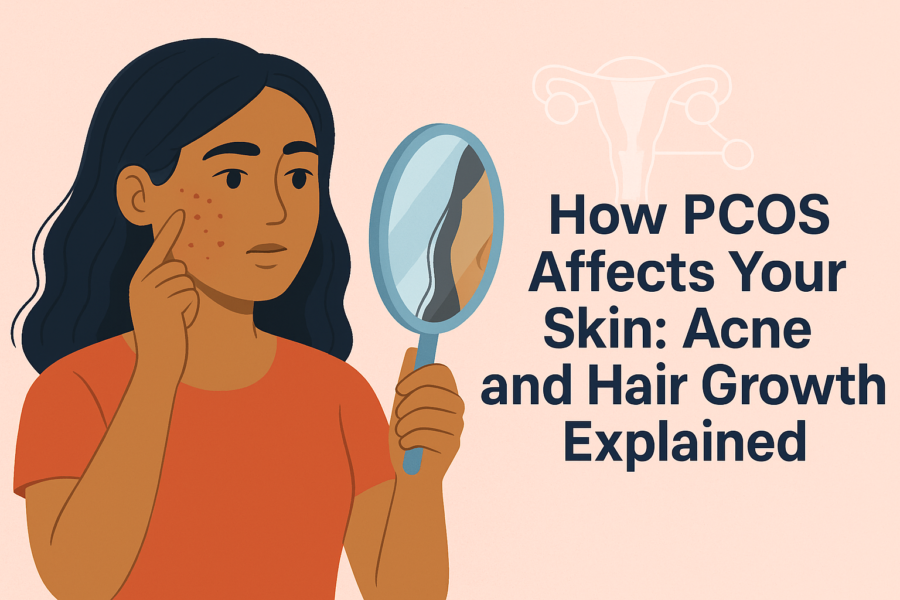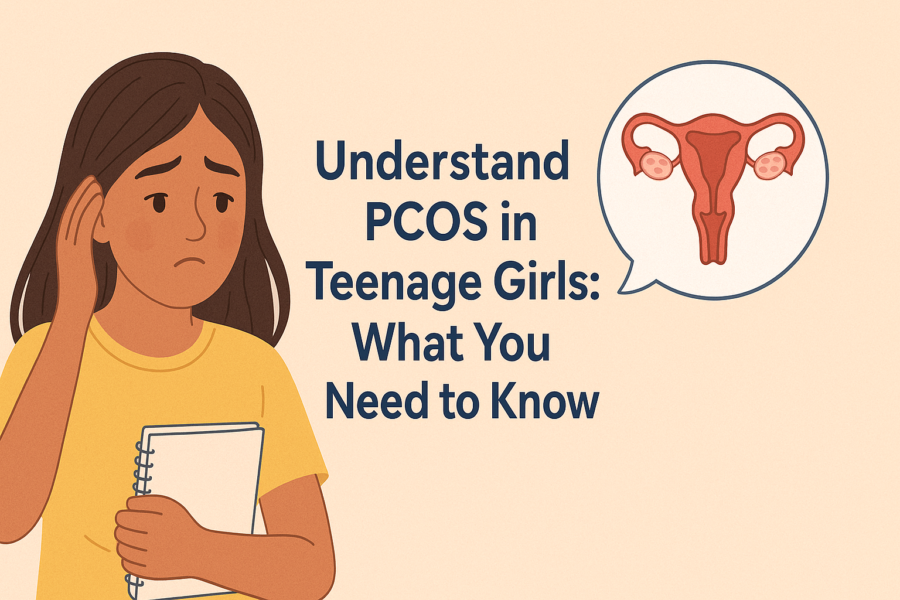PCOS, or Polycystic Ovary Syndrome, is a hormonal condition affecting millions of women worldwide. While the physical symptoms like irregular periods, weight gain, and unwanted hair growth are often discussed, the mental health impact of PCOS is equally important but often goes unnoticed.Living with PCOS can be a rollercoaster of emotions. The hormonal fluctuations can trigger anxiety, depression, and mood swings. The constant battle with weight management and societal beauty standards can further chip away at self-esteem and confidence. It’s a delicate dance, and it’s crucial to prioritize mental well-being alongside physical health when navigating life with PCOS.
Here are some key ways to manage your mental health with PCOS:
1. Acknowledge and Validate Your Feelings:
The first step is acknowledging that the emotional challenges you’re facing are real and valid. Bottling up your feelings will only exacerbate them. Talk to someone you trust – a friend, family member, therapist, or even an online support group. Sharing your experiences can be incredibly cathartic and help you realize you’re not alone.
2. Challenge Negative Thoughts:
PCOS can often lead to negative self-talk and feelings of inadequacy. It’s important to challenge these negative thought patterns and replace them with positive affirmations. Focus on your strengths, celebrate your achievements, and practice self-compassion. Remember, you are worthy and deserving of love and happiness, PCOS or not.
3. Prioritize Self-Care:
Self-care is not a luxury; it’s a necessity. Take time for activities that nourish your mind, body, and soul. This could include anything from practicing yoga and meditation to spending time in nature or indulging in a relaxing hobby. When you prioritize your well-being, you’re better equipped to handle the challenges PCOS throws your way.
4. Build a Support System:
Surround yourself with people who love and support you unconditionally. Having a strong support system can provide invaluable emotional strength and guidance. Don’t be afraid to ask for help when you need it, whether it’s for a listening ear, a shoulder to cry on, or practical assistance.
5. Seek Professional Help:
If you’re struggling to cope with the emotional burden of PCOS, don’t hesitate to seek professional help. A therapist can provide you with tools and strategies to manage stress, anxiety, and depression. Remember, seeking help is a sign of strength, not weakness.
Living with PCOS doesn’t have to be a solo journey. By prioritizing your mental health and implementing these tips, you can cultivate resilience, embrace self-love, and thrive despite the challenges.






